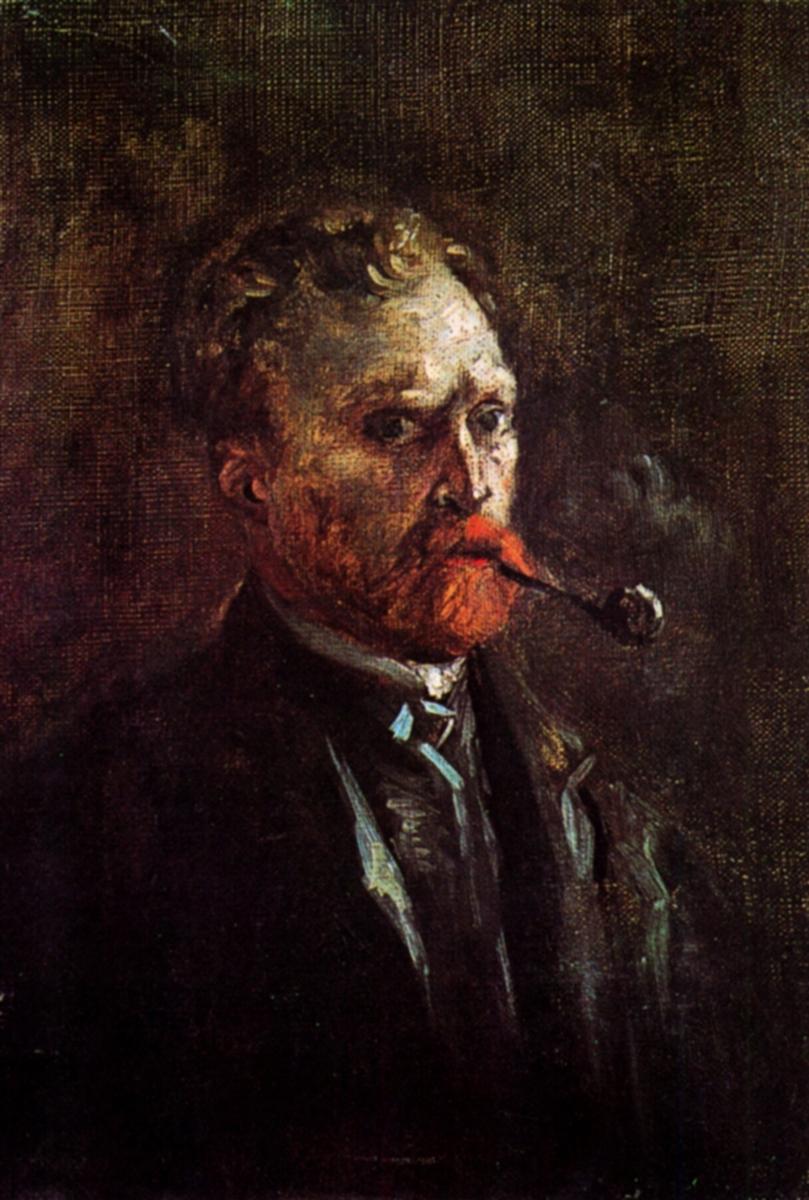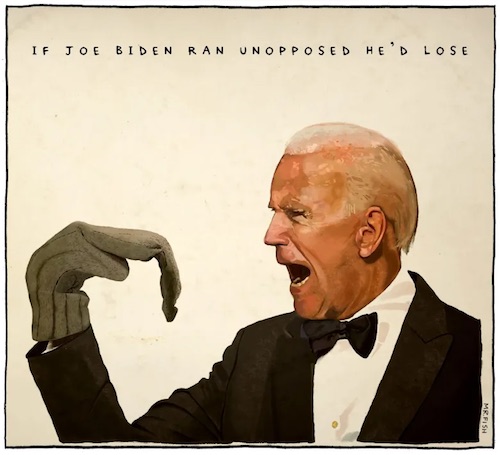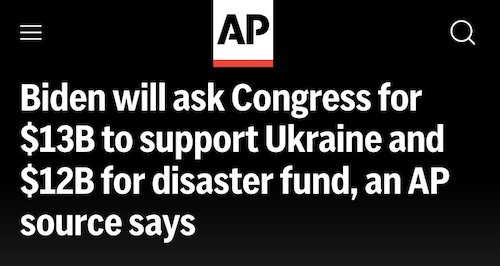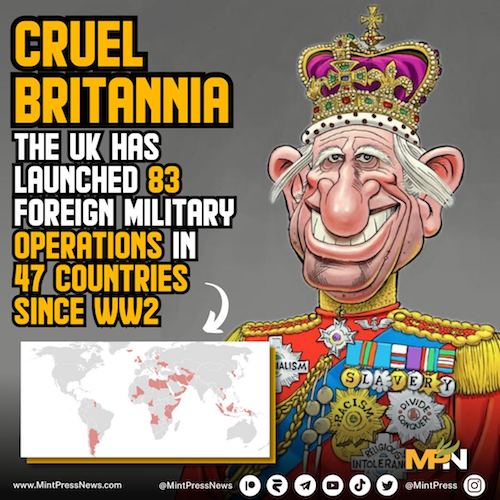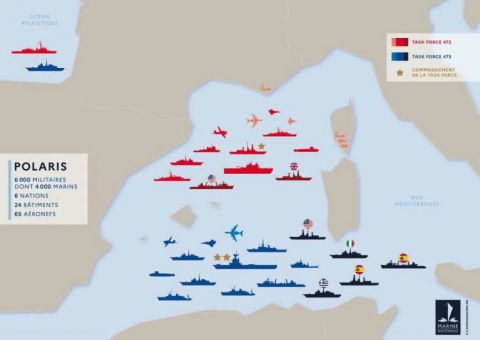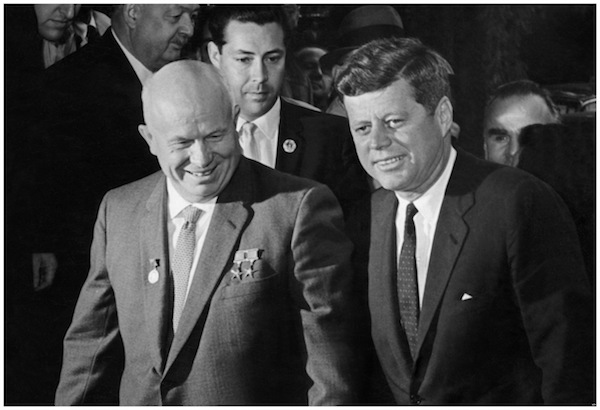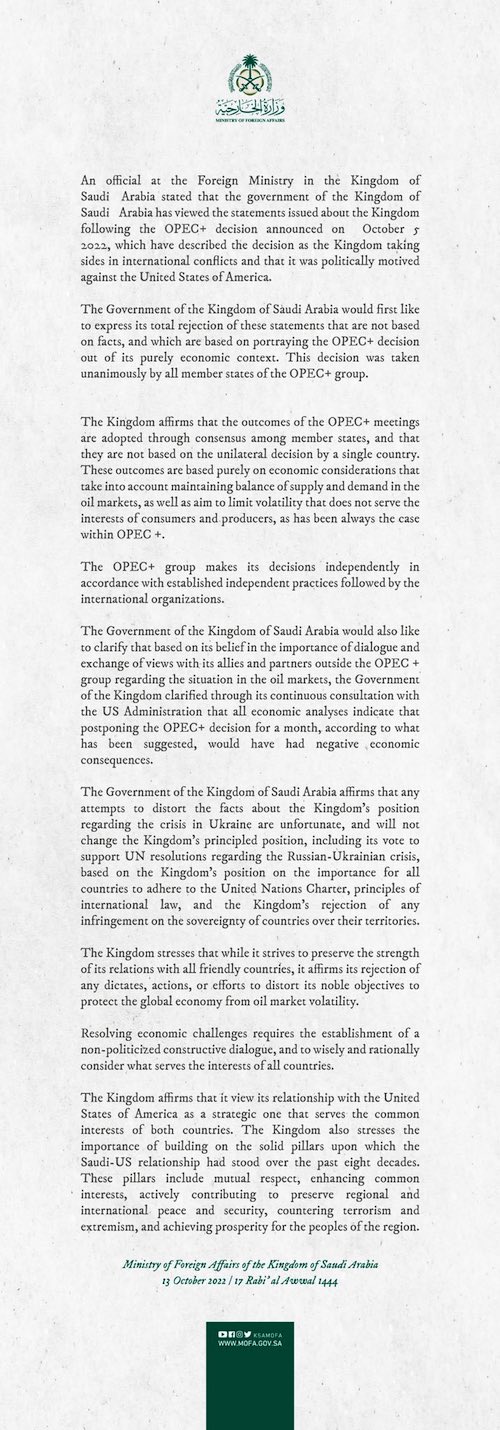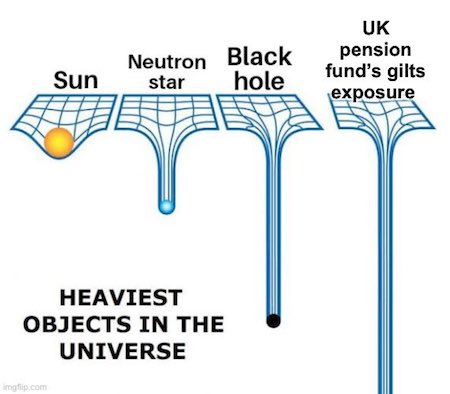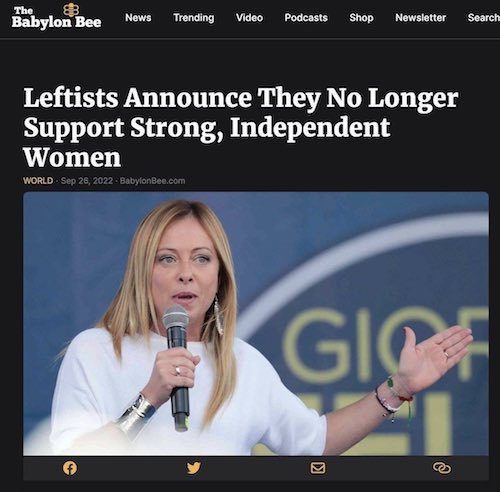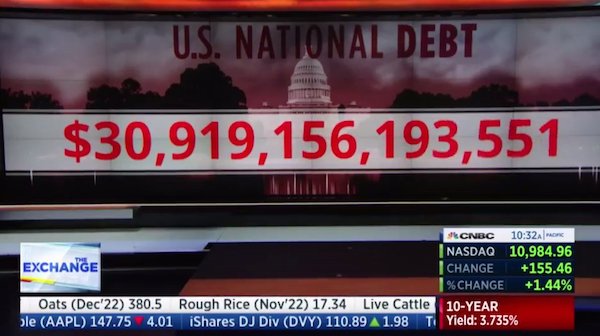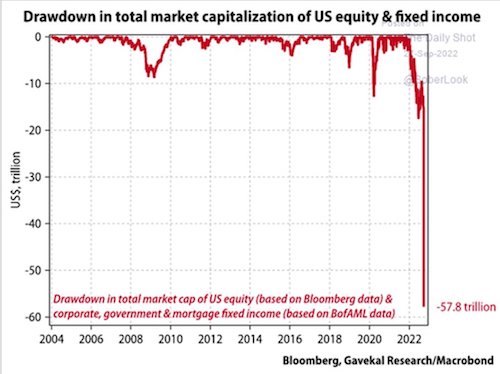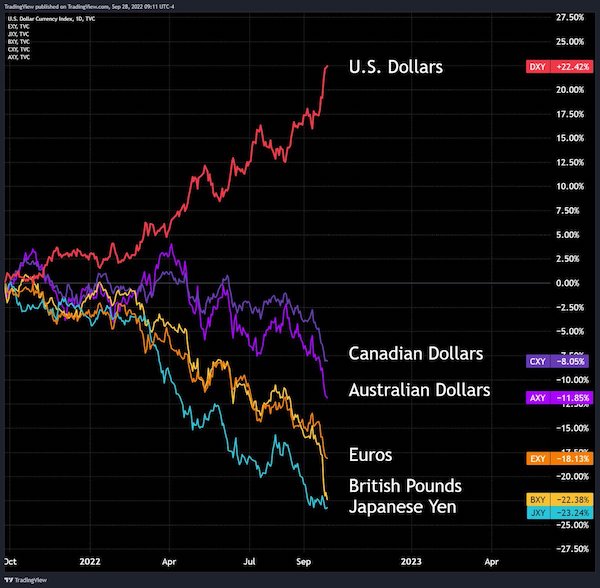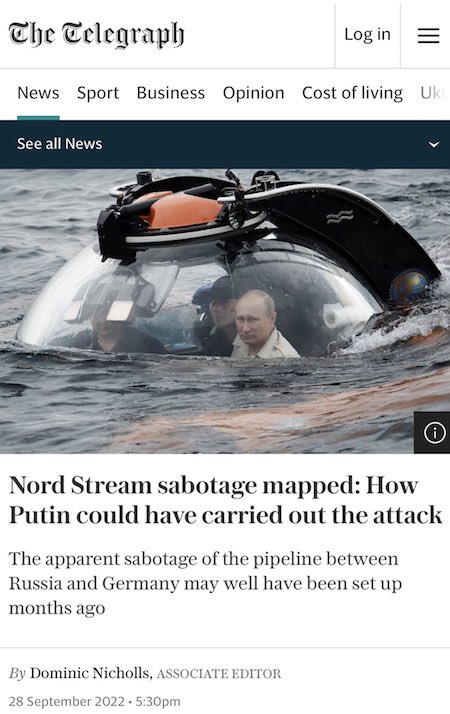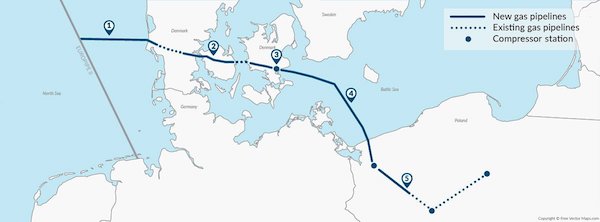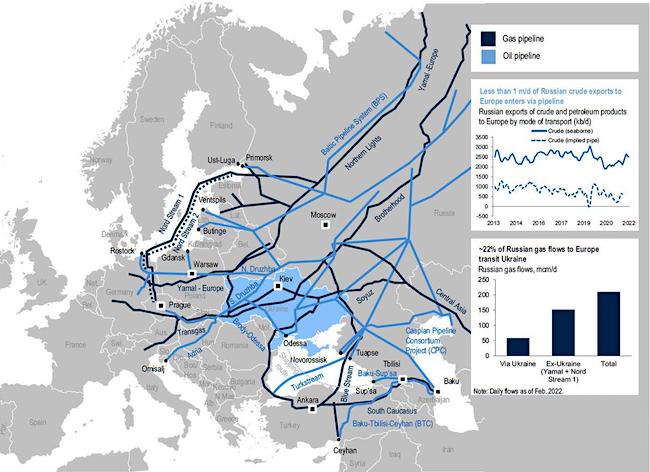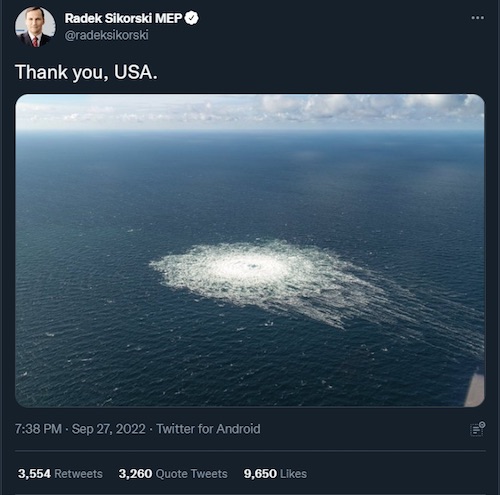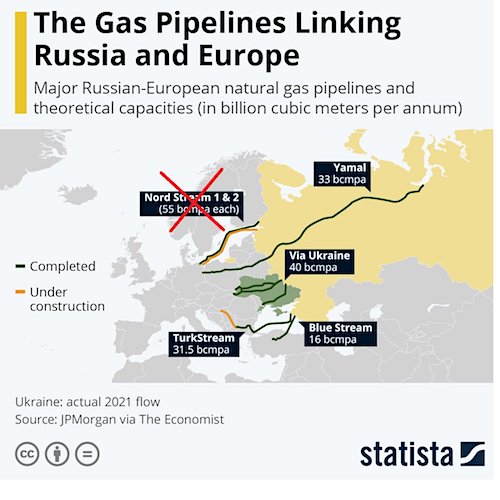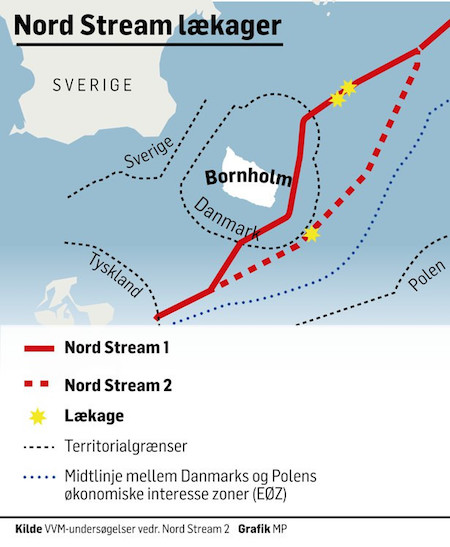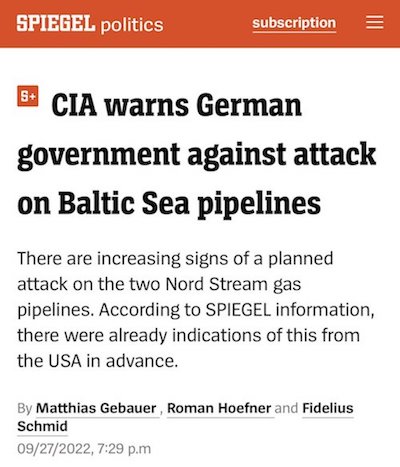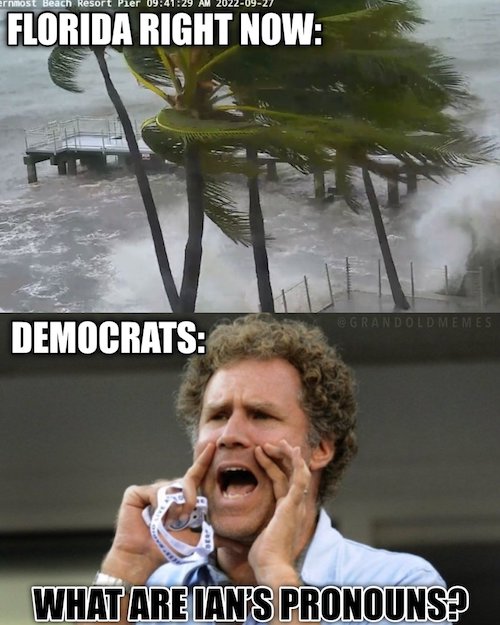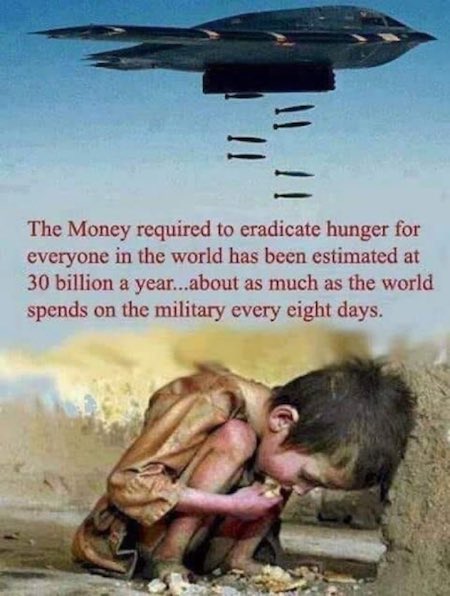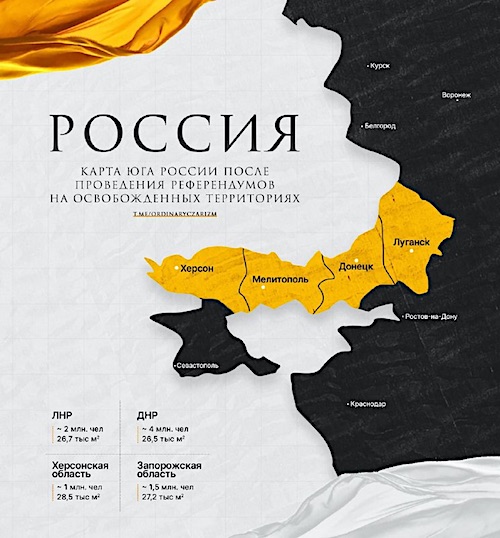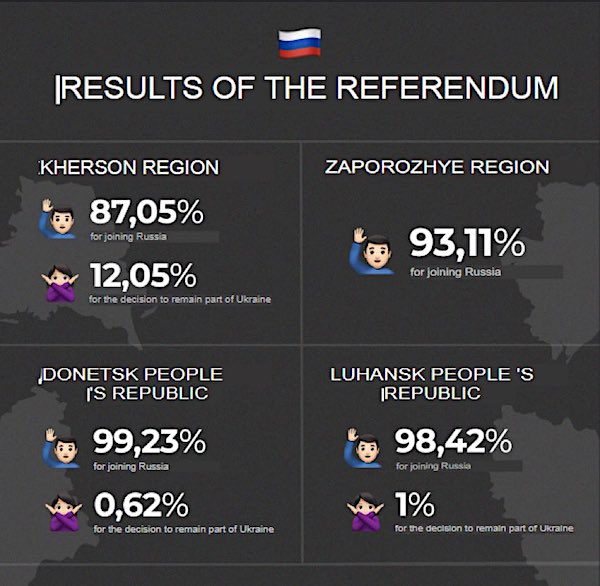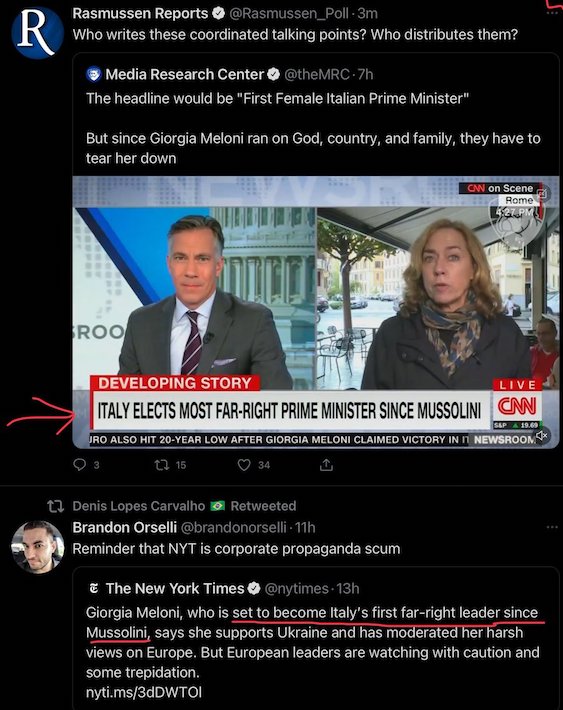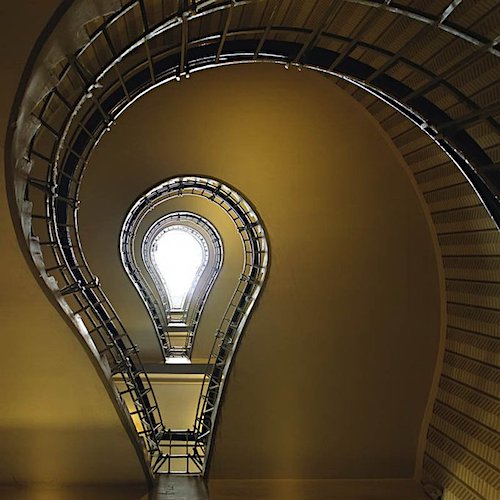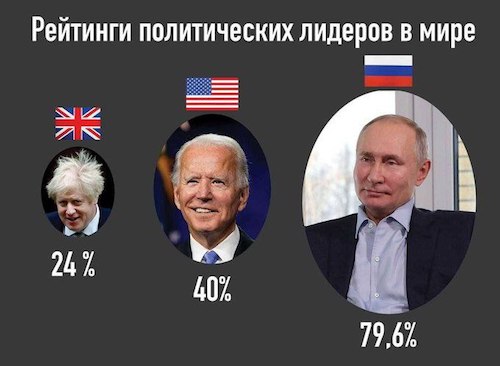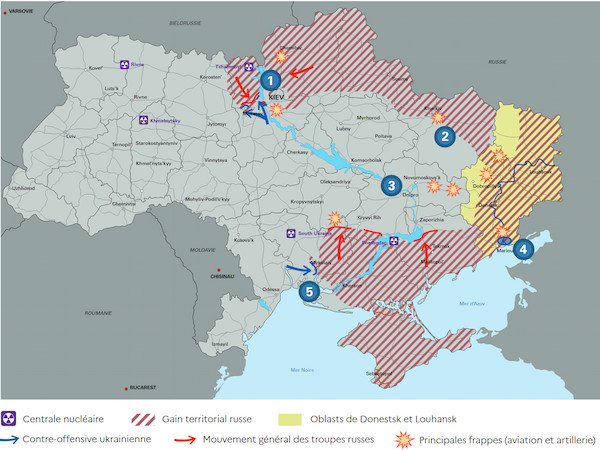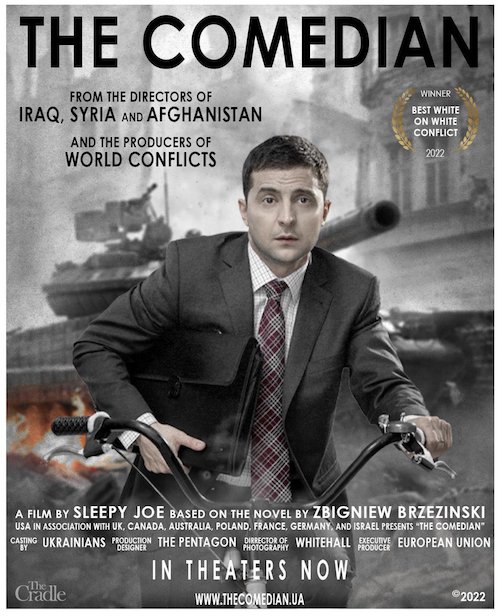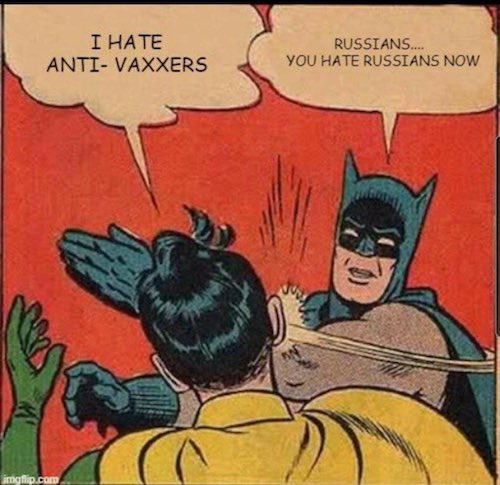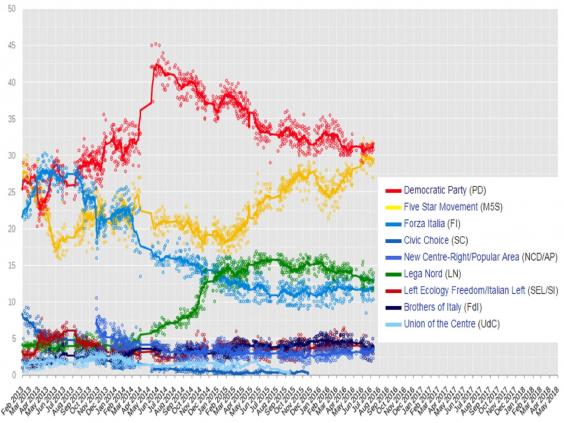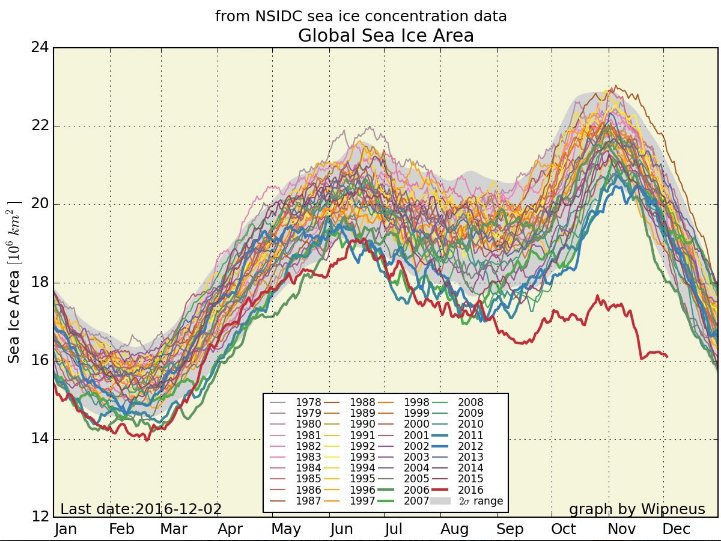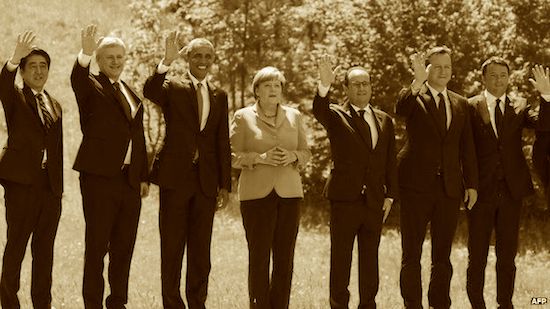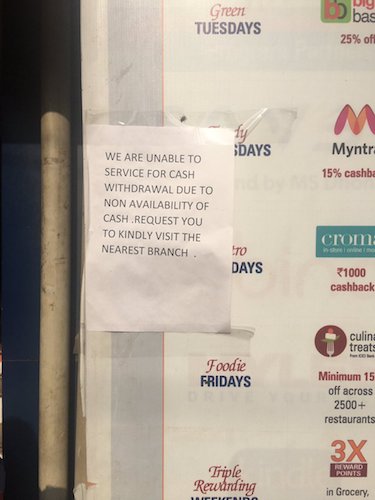
Pablo Picasso Self portrait 1972

In what is only typical, I’ve seen stories about 40 beheaded babies everywhere. That is Putin eats babies territory. Don’t touch it. Reality is bad enough.
“Throughout the fake “Hamas beheaded 40 children” psyop, there wasn’t a single image of one of the supposed beheaded babies, no images of them when they were alive, no names nor ages, and no parents family members or came forward to say their child had been beheaded. It was all based on unverified claims and “beliefs” from the Israeli military.”






Blevins
How did Israeli intelligence miss that Hamas was planning such a massive attack? Well, it appears they didn’t. Reports are now revealing that Egypt repeatedly warned Israel of an attack coming from Gaza, but Israeli officials chose to ignore it and focus on their settlements in… pic.twitter.com/Oyl3kHvoV0
— Rachel Blevins (@RachBlevins) October 10, 2023



Macgregor
I would be very surprised if Benjamin Netanyahu and his administration is not gone in the next few weeks.
The Israeli's have shipped enormous quantities of 155 mm artillery ammunition to Ukraine at the request of the United States.
Zelensky forged something of a relationship… pic.twitter.com/DJmS16iXLc
— Douglas Macgregor (@DougAMacgregor) October 10, 2023
Mark Milley is off the reservation, he needs to go into therapy.
He's in fairy land if he believes we are going to double this defense budget for a future war with Russia. pic.twitter.com/PuxGjab7yq
— Douglas Macgregor (@DougAMacgregor) October 11, 2023

Mental gymnastics”
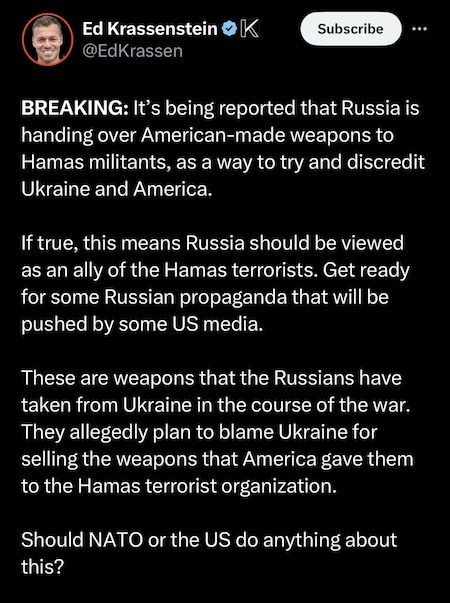
More mental gymnastics:
@Thom_Hartmann Oct 8: “Hamas apparently knew how to get around Israel’s Iron Dome defenses. They probably learned this from Iran. Iran almost certainly got the information from Russia. And who gave it to Russia? Sure looks like it was Donald Trump, at the request of Putin..”

Rabbi
Rabbi Elhanan Beck:
There is only one solution for peace in the holy land. That is to go back to before 1948 and return all occupied lands from sea to land to the Palestinian society. The only society in the world that claims to be a victim by occupying other people's lands is… pic.twitter.com/jiH9EJzqa1
— Torah Judaism (@TorahJudaism) October 9, 2023



Pepe Escobar: “Israel bombed to smithereens St. Porphyrius Orthodox Church in Gaza: built 1,616 years ago, the third oldest church in the world.”


“The Israeli-US “pipedream” fostered by Prime Minister Benjamin Netanyahu that relations with Saudi Arabia are going to normalize is now also “gone” for the foreseeable future..”
• US Support for Israel May Set Off Total Middle East Upheaval – Ex-Envoy (Sp.)
The United States will support Israel in all actions it takes against Hamas in Gaza after the killing of over 1,000 Israelis in Saturday’s incursion, but this will set off an anti-US wave across the Middle East and the wider Muslim world, former US Ambassador to Saudi Arabia Chas Freeman told Sputnik. Israel formally declared a state of war on Sunday, a day after Hamas invaded Israeli territory and committed the greatest slaughter of civilians in the 75 year history of the Jewish state. On Monday, Israel put the Gaza Strip under full blockade, with no food, gas or electricity supplies. Both Israel and Palestine have so far reported hundreds of dead and thousands of injured as a result of the escalation.
“The United States will support Israel reflexively but this will set off a much wider anti-US reaction across the Middle East and the wider Muslim world,” Freeman, who also served as assistant secretary of defense for international security affairs in the Clinton administration, said in an interview. The crisis is unlikely to be confined to Israel and Gaza and will metastasize to other neighboring countries, Freeman warned. “The geopolitical dangers could very well rapidly spread to Lebanon and Syria,” he said. The Israeli-US “pipedream” fostered by Prime Minister Benjamin Netanyahu that relations with Saudi Arabia are going to normalize is now also “gone” for the foreseeable future, Freeman believes. The Biden administration itself appears to have been caught off guard by the ferocious suddenness and success of Hamas’ invasion, Freeman suggested. “National Security Adviser Jake Sullivan last week made the truly idiotic claim that the Middle East region had reached a reassuring level of stability,” he said.

“.. the Americans sent messages to the Resistance Axis – specifically Iran and Hezbollah – saying, essentially: “We don’t want this to escalate. We want and need stability on the Lebanese border with Israel. We are urging you not to interfere in this war.”
• The War Has Started (Illaik)
Hamas did not coordinate its military operation with any of its Resistance Axis allies. It also did not plan to achieve the stunning results that were soon to follow. The Qassam Brigades’ immediate goal was only to destroy Israeli army positions around the Gaza Strip and capture as many soldiers as possible, which they could later exchange for the thousands of Palestinian captives in Israeli prisons. But the Palestinian resistance forces were taken by surprise at the laxity of the occupation army. Contrary to expectations, they stumbled upon security vacuums and poorly guarded military sites in which a large number of enemy soldiers and officers were fast asleep. It was this unexpected opportunity that prodded the Palestinian fighters to reach for bigger gains.
Hamas’ military leadership planned to carry out this operation in complete secrecy. Just weeks earlier, their fighters had conducted military maneuvers/exercises that were observed by the Israelis. But Tel Aviv’s rather complacent intelligence assessment had been that “Hamas is training for what it does not dare to do.” The Israelis, in short, thought that Hamas was merely flexing in order to gain financial concessions for Gaza. No actual operation was ever expected by Israel’s military brass. The veil of secrecy over the operation also extended to the Hamas fighters who carried out the attack. Sources close to Hamas say that their cadres believed, until the morning of the operation, that they were assembling for a training exercise, not for the real thing.
Very few knew details of the comprehensive attack plan. Even Hamas’ allies in Lebanon and Iran learned of the operation at zero o’clock and not a moment before, according to well-informed sources in the Resistance Axis. Even for this axis, the Hamas operation went beyond all possible expectations. Although true that many of the Hamas tactics employed are shared among the Axis’ fighters in Palestine, Lebanon, Iran, and Yemen, the innovation in the Al-Aqsa Flood operation was the signature of the Al-Qassam Brigades, and particularly its brilliant leader Muhammad Deif. The operation was coordinated with remarkable professionalism: accurate and detailed intelligence was amassed, high-level training exercises organized, secrecy was paramount, and superior coordination was established between the myriad drones, paratroopers, and vast majority of Hamas fighters who crossed into the occupation state, through tunnels and above ground.
Al Qassam also planned to target Israeli communications towers and all military sites surrounding Gaza. From a military perspective, this was a near-perfect operation that led to the destruction of all the facilities of the Israeli army’s “Gaza Division” and the annihilation of entire Israeli brigades. For Israel, this was a total humiliation – something it had never experienced before, even in the devastating 1973 Arab-Israeli war. With the support of the collective west, Israel is now assembling a plan to restore its deterrence. Operation Al-Aqsa Flood didn’t only affect the Israelis – it has also endangered western deterrence throughout West Asia and the Arab world. The decline in Israel’s deterrent capacity correlates directly with the weakening of western hegemony in the region.
While Israel has been scurrying around to mobilize its troops and equipment for a counterattack, the Americans sent messages to the Resistance Axis – specifically Iran and Hezbollah – saying, essentially: “We don’t want this to escalate. We want and need stability on the Lebanese border with Israel. We are urging you not to interfere in this war.” The messages were sent on 7 October, as events unfolded, and through more than one medium. Hezbollah’s response was seen on the ground the very next morning, when it bombed Israeli army positions in the occupied Lebanese Shebaa Farms. This was a warning message, which was clarified further by Hezbollah’s Executive Council Chief Hashem Safi Al-Din when he said: “We will not remain neutral in this battle.” Neither will Washington, which immediately announced $8 billion in aid to Israel, and sent an aircraft carrier to the eastern Mediterranean Sea. The US cannot afford for Israel to take more losses, but how far will they go to deter Tel Aviv’s adversaries?

“..Biden has abandoned the idea of reviving the Iran nuclear deal and of ending the war in Yemen. He also decided to try and inflict a death blow on the Palestinian cause for statehood.”
• The Israel-Palestine War Is Washington’s Fault (Inlakesh)
The Declaration of Principles, the first agreement in the Oslo Accords, was signed on the White House lawn over 30 years ago. The accords were supposed to solve the conflict in a span of five years, but failed due to America’s inability to function as a truly neutral peace broker. During the administration of US President Donald Trump, Washington abandoned the two-state solution altogether, through the pursuance of normalization deals between Arab nations and Israel. The issue of Palestinian statehood, which the UN agrees should be solved through a two-state solution, was sidelined as a non-issue and the one bargaining chip possessed by the Palestinians, Arab-Israeli normalization, began to be taken off of the table.
How did the Palestinian political parties respond to normalization in 2018? They overwhelmingly chose non-violent struggle, including in Gaza, where Hamas endorsed the ‘Great March of Return’, a mass protest movement which lasted around a year. Most of the protesters were peaceful, but it was the relatively small groups of Palestinians committing sabotage and anti-Israeli aggression at the border fence that made the news. In response, Israeli forces killed hundreds of Palestinians and injured almost 10,000. On the Israeli side, there was not a single dead soldier or civilian, while Israeli snipers targeted women, children, journalists, disabled people, and medical workers, according to a UN human rights report on the demonstrations. How did the US react to hundreds of thousands of unarmed Palestinian protesters marching on the separation fence between Gaza and Israel? It ignored them and continued to pursue Arab-Israeli normalization.
Under the Biden administration, the two-state solution was also sidelined and the plight of Palestinians was ignored as insignificant. Instead of seeking a solution to the violence which has been steadily escalating to levels not seen in 20 years, during the course of the past two years – especially in the West Bank – Biden has chosen to look the other way and has pursued Saudi-Israeli normalization instead. A deal between Saudi Arabia and Israel would also have the potential to collapse the Iranian-Saudi rapprochement, brokered earlier this year by China, in addition to potentially dragging Washington into an open confrontation with Yemen. Instead of seeking to fulfill the foreign policy pledges made at the start of his term in office, Biden has abandoned the idea of reviving the Iran nuclear deal and of ending the war in Yemen. He also decided to try and inflict a death blow on the Palestinian cause for statehood.
What Hamas just did from Gaza would never have happened if the US had pursued a somewhat rational approach to the region. It could even have been prevented if the US had presented a political plan to de-escalate rising tensions in the occupied territories. Instead, the American government decided to overlook the armed groups in Gaza while attempting to completely dismantle their cause. And all of this for what? A fancy photo op that Biden can use to steer the Democratic Party to victory in the presidential election in 2024, by claiming that he brought peace to the Middle East.
Due to the current conflict, normalization doesn’t seem to be on the table anytime soon anyway, which would mean Hamas’ offensive has not only dealt a blow to Israel, but also to the US. Now that Israel is at war with Gaza, what is the US doing? It is condemning one side, while arming Israel and greenlighting any action it takes. Initially, Washington even refused to urge a ceasefire, in contrast to the push for one from Moscow and Beijing. The White House refuses to acknowledge its role in creating the current violence and carries on with the exact same rhetoric and policy decisions that led to the horrifying war we see today.

“The Republicans especially and the American people, frankly, have had enough of Ukraine..”
• US Funding May be Diverted From Ukraine to Israel (Sp.)
The White House is seeking to attach Ukraine funding to the urgent package for Israel, in a hope that it will help circumvent House Republicans’ opposition to further assistance to Kiev, according to the US mainstream press. House Republicans have signaled strong support to Israel and speeded up efforts to elect a new House speaker. For its part, the White House has reportedly decided to capitalize on the momentum and pair urgent funds to Tel Aviv with a Ukraine military package. Biden officials are said to have held talks with top House and Senate figures to secure additional military supplies for Israel. Per the US press, the request could come to the US Congress as early as next week. “The funding is probably going to be diverted more to Israel,” Michael Maloof, a former senior security policy analyst in the Office of the US Secretary of Defense, told Sputnik.
“And I think the American people see that the Ukrainians just were not able to muster a counteroffensive and billions of dollars were expended and nothing to show for it. So Europeans are thinking the same way. And as we approach a winter which promises to be much more severe than in previous years, they’re going to be looking more inward in the European countries to their needs that are critical needs to survive. So I think in terms of US funding, first of all, nothing is going to get passed because we can’t get a House speaker and the House cannot take up anything unless and until it has a permanent House speaker.” It is unclear how big the Israeli package would be. However, per Maloof, Israel’s lobby in DC appears to be much stronger than the Ukrainian one.
Prior to the Israeli-Hamas war, the Biden administration was considering seeking a $100 billion package for Ukraine. However, some Freedom Caucus Republicans have already signaled they are against merging Israel and Ukraine aid in one bill. “They shouldn’t be tied together. I will not vote to fund Ukraine,” GOP Rep. Marjorie Taylor Greene from Georgia told the US press. “I think the White House proposal will be D.O.A. or dead on arrival unless the House and the Senate are in some kind of a mood whereby they give a bulk of stuff to funding to Israel and maybe a very small token portion to Ukraine. But I don’t know that. The Republicans especially and the American people, frankly, have had enough of Ukraine,” Maloof said. [..] Maloof suspects that the Israel-Hamas conflict could “explode into something much, much larger than just between Israel and the Palestinians.” “So we may be dealing with at least two conflicts at once,” he said, adding that the US is concurrently poking China over the Taiwan Island. It appears the US could easily outstretch itself.

“..helping Russia in destroying freedom in Europe..” Sounds a bit desperate.. How would that get you your funding back anyway?
• Zelensky Blames Putin For Hamas Attack On Israel (HE)
Ukrainian President Volodymyr Zelensky released a video on Monday blaming the attacks on Israel by Hamas on Russia and Vladimir Putin. The attacks have resulted in a war between the IDF and Middle Eastern terrorist organizations, mostly taking place in and around the Gaza Strip. He posted the video to X, with the caption: “We have data very clearly proving that Russia is interested in inciting war in the Middle East. So that a new source of pain and suffering would erode global unity and exacerbate cleavages and controversies, helping Russia in destroying freedom in Europe. We can see Russian propagandists gloating. We can see Moscow’s Iranian friends openly extending a helping hand to those who attacked Israel.
Ukrainian President Zelenskyy blames Israel's war on terror on Russian President Vladimir Putin.
"Russia is interested in triggering a war in the Middle East." pic.twitter.com/YnNRFqfryZ
— The Post Millennial (@TPostMillennial) October 9, 2023
All of this represents a much greater threat than the world is currently aware of. The world wars of the past were triggered by local aggressions. We know how to counter this threat. We have already prepared the necessary steps. And our primary goal is to protect the need for maximum global unity.” Zelensky stated, “We see Moscow’s Iranian friends openly supporting those who attacked Israel… “We are preparing the appropriate steps. And most importantly, we are defending the need for maximum unity in the world,” he claimed. “I am grateful to all the leaders and states who are now fully aware of the danger and are ready to work together to keep the situation under control to give the obvious sponsors of terror from broader interference,” he continued, seemingly referencing Russia.

“Lebanon is not yet a war zone. However, it’s an area of operation. But it seems it’s also a space for both sides to exchange messages..”
• Khamenei Distances Iran From Hamas Operation (ZH)
The Israeli army has reportedly issued an order for citizens to evacuate the Metula settlement, which lies just along the northern border with Lebanon. This after a salvo of some 15 rockets was fired from southern Lebanon in a suspected Hezbollah operation. “In response to the launches identified from Lebanese territory toward Israeli territory, IDF soldiers are currently responding with artillery fire,” regional sources report. The IDF said it intercepted several of them, while most landed in open fields. Things are steadily escalating there: “A senior Israeli officer was killed in a confrontation with militants on the frontier with Lebanon on Monday, Israel’s military has confirmed. The [Israeli] military said troops and aircraft killed two “terrorist infiltrators” who had crossed into Israeli territory. Palestinian Islamic Jihad claimed that they were its members. Later, at least three militants from Lebanon’s Hezbollah movement were killed as the military attacked sites in Lebanon in response to mortar fire.”
Still, both Israel and Iran-backed Hezbollah have thus far narrowly avoided a spiral into all-out war at the Israel-Lebanon border. “What’s happening here seems to be a kind of contained tension. Lebanon is not yet a war zone. However, it’s an area of operation. But it seems it’s also a space for both sides to exchange messages,” an Al Jazeera’s correspondent, Ali Hashem, has observed. Iran, meanwhile, has been on the defensive after major US media, especially the Wall Street Journal, cited US sources who alleged Tehran supported, funded and helped plan Hamas’ deadly rampage across southern Israel on Saturday. There’s speculation that the Iranians fear Israel’s Netanyahu government could begin targeting sites inside Iran. A regional source reports Tuesday on the unprecedented softening of rhetoric from Iran’s leadership, related to Hamas and Israel as follows:
“Iran’s supreme leader has strongly rejected any involvement in the Hamas movement’s surprise attack on Israel. The public maneuvering, which involved Ayatollah Ali Khamenei strikingly repeating his rejection of an Iranian role three times in a 90-second span, follows controversial claims in US media that Tehran helped plan the Oct. 7 blitz. Speaking on condition of anonymity, a high-ranking Iranian source told Amwaj.media that Khamenei’s remarks—his first since the Hamas offensive—may have been sparked by “him seeing the direction of the Israeli public diplomacy campaign.” Rejecting concerns of an impending Israeli attack as Khamenei’s underlying motive, the source said the supreme leader’s comments are “pre-emptive” as opposed to reactive.”
Addressing the rare decision by Khamenei to be so vocal in his rejection of an Iranian role in the Palestinian blitz, a second senior source in Tehran told Amwaj.media, “Give me one reason why he should do otherwise.” Also speaking anonymously given the sensitivity of the matter, he continued, “Why should one give them the perfect justification they need for an attack?” At the same time, the source dismissed the notion that being so explicit in rejecting a role in the Hamas attack indicates a sense of weakness on the part of Iran.
The Pentagon has meanwhile warned both Iran and Hezbollah against jumping into the conflict in a fresh statement: “The senior US official said Iran, Hezbollah and other groups backed by Iran’s Islamic Revolutionary Guard Corps (IRGC) “should think twice” before joining in the war. “Iran-backed adversaries like Lebanese Hezbollah should not question the commitment of the US government to support the defense of Israel,” the official added. “We believe that the folks in the region understand what those capabilities are,” the White House’s National Security Council coordinator John Kirby, a former US Navy rear admiral, told reporters Monday evening. This as the following just came across the news wires: “US MAY DEPLOY A SECOND AIRCRAFT CARRIER NEAR ISRAEL: WSJ”

The US tried to use the Saudi-Israel talks to tear apart the Muslim world. But Russia/China just brought Saudi and Iran together.
• Saudi Arabia Expresses ‘Unwavering’ Support For Palestine (RT)
Saudi Arabia continues to support the “legitimate rights” of Palestinians, Crown Prince Mohammed bin Salman told Palestinian President Mahmoud Abbas in a phone call on Monday, Saudi media reported. The latest escalation in Gaza, which broke out after a surprise attack on Israel by the Hamas militant group over the weekend, poses a threat to security and stability in the entire Middle East, the crown prince said, according to the Saudi Gazette. The kingdom plans to take “proactive efforts” and collaborate with international and regional powers to prevent the conflict between Israel and Hamas from spilling over to other parts of the Middle East, bin Salman said, adding that his nation is also seeking to bring a “swift end” to the hostilities.
He further emphasized the importance of humanitarian law and refraining from targeting civilians, while insisting that Saudi Arabia stands by the Palestinians in their pursuit of a “dignified life… [the] realization of their hopes and aspirations,” as well as a “lasting peace,” according to the Saudi Gazette. Bin Salman also discussed the situation in Gaza with Jordanian King Abdullah bin Al-Hussein and Egyptian President Abdel Fattah el-Sisi. Both conversations were largely focused on preserving regional stability and preventing the conflict from spreading, the outlet reported. Riyadh’s statements came amid the latest flareup of the Israeli-Palestinian conflict, following a massive attack on Israel by the Gaza-based Hamas militant group. Militants fired thousands of rockets at Israel and launched a cross-border raid over the weekend.
More than 900 Israelis, including over 100 military personnel, died in the initial attack and follow-up clashes, Israeli authorities said. Israel responded with a massive bombing campaign against Gaza, also announcing a total blockade of the exclave, cutting it off from fuel, water, and food supplies. The Gaza Health Ministry said that at least 510 Palestinians had been killed and 2,751 injured in Israeli air raids as of Monday. The UN said on Tuesday it would launch an investigation into war crimes committed during the latest escalation, adding that it was in possession of “clear evidence” of violations by both sides. On Monday, Turkish President Recep Tayyip Erdogan urged Israel and the Palestinian militants to refrain from further violence, and offered Ankara’s services as a mediator in any potential peace talks. He also said that his nation could facilitate a prisoner exchange if requested.

“Muslims were not enemies of Ukraine and allies of Russia (with the exception of eschatologically awakened Iran and Syria), but now they will be..”
• The Civilization Of The Antichrist (Alexander Dugin)
The escalation of Israel’s war with Palestine will undoubtedly consolidate the Islamic world. Conservatives in the West are again talking about defending the ‘Judeo-Christian civilization in the face of Muslims’, and the radical ideology of Hamas provides them with a convenient excuse for this. However, a society of deep atheism, materialism and legalization of all kinds of perversions, which has long since abandoned traditional theology and values (and orientations), cannot be considered either Christian or Jewish. If the West, as it is now, supports Israel, it is seriously guilty of something. After all, if the devil’s civilization is on your side, then you have done something wrong.
There is no such thing as a Judeo-Christian world, it just doesn’t make sense. The Islamic world, on the contrary, exists and in it, the traditions are still strong. It turns out that it is not the Judeo-Christians against the Muslims, but the Muslims against the satanic culture, against Dajjal. Biden’s idea of combining the theme of support for Ukraine with support for Israel, only underlines this: the West is always on the side of those who submit to its hegemony and serve it. Muslims were not enemies of Ukraine and allies of Russia (with the exception of eschatologically awakened Iran and Syria), but now they will be. Russia is the pole of a multipolar world. Islam is the pole of a multipolar world. Both poles oppose the West’s desperate attempts to save unipolarism and its global dominance at any cost, even at the cost of a world war.
The Palestinian conflict with Israel was not the frontline of a conflict of civilizations. Now it is. Just as the tensions between Russia and Ukraine were regional in character until the Nazis in Kiev were supported by the West, the war in Ukraine has become the frontline of a global confrontation between multipolarity and unipolarity. The scope of this confrontation is growing. The situation is becoming more and more sinister. Already, billions of people on the planet are convinced that the collective West and its allies are absolute evil and the civilization of the Antichrist. Democrats, globalists and neoconservatives are leading humanity straight into the abyss. Which, strictly speaking, is what demons are supposed to do.

Hur’s job appears to be ‘under the carpet sweeper’.
• Special Counsel Hur May Prove the Ultimate Punchline in Washington (Turley)
A neutron and Special Counsel Robert Hur walk into a bar and order two drinks. When Hur asks how much they owe, the bartender responds, “come on, for you guys, you know there’s never a charge.” Unfortunately, for the prosecutor tasked with investigating President Joe Biden, it may not prove a laughing matter. In many ways, Hur is the neutron prosecutor. He may have spent two days interviewing Biden on the discovery of classified material going back decades in various offices and home locations. But we already know that the Justice Department has long maintained a policy against the charging of a sitting president. There are no such problems for Hur’s colleague. Jack Smith was appointed to investigate former President Donald Trump. He is the ultimate proton prosecutor. Smith has aggressively pursued Trump in two different jurisdictions with a long litany of charges, including alleged criminal conduct tied to his removal and retention of classified material.
In comparison, Hur appeared to disappear. There was no word of any grand jury or the issuance of subpoenas. His interview this week was the sign of life for a prosecutor who seemed headed for milk cartons. I have long disagreed with the Justice Department policy as without foundation in the Constitution. There is no question that the best course in dealing with a felonious president is to first remove the president from office through the impeachment process and then indict the former president in the wake of the Senate conviction. However, even the Justice Department admitted in reaching this policy during the Clinton administration that “[n]either the text nor the history of the Constitution” is “dispositive” on this question.
It simply rendered an internal opinion against indictments of a sitting president as a matter of “considerations of constitutional structure.” That is particularly a problem in what could be a strong case. We still do not know whether fingerprints were taken off the documents found in various locations associated with the President. Unlike Smith’s investigation, there have been no strategic leaks from Hur’s investigation. On its face, the President claims that he had no knowledge of these documents appears dubious at best. Some classified material reportedly goes back to Biden’s time as a senator — material that he would have had to remove from a sensitive compartmented information facility or secure room on Capitol Hill. More importantly, the documents from the Obama Administration were removed when Biden left as vice president. They were then divided and repeatedly moved to different locations.
That suggests not just knowledge but a purpose. Why were they divided and some documents were found in his garage and possibly his library? If Hur found fingerprints that contradict Biden’s statements, he could face not just some of the same charges brought against Trump but also possible false statement or obstruction charges. Notably, Biden used counsel to conduct searches and (as in the Trump case) additional classified materials were found after the Biden team said that they had finished their searches. There are serious questions over whether, in allowing uncleared counsel to search through these documents, evidence may have been lost in how they were stored or appeared in locations like the garage. Hur can bring charges against third parties, who would not be barred from indictment under the DOJ policy. But what does Hur then do if he has evidence against the President himself? He could wait to see if Biden does not run for reelection or loses in 2024.
He could ask for a reconsideration of the policy, which was poorly supported during the Clinton Administration as a rationale for blocking any indictment for perjury by the Office of Legal Counsel. Absent such moves, the public may face the glaring contradiction of proton and neutron prosecutors where Smith pursues a former president with abandon while Hur is left with investigating with no possibility of an immediate charge. It is the type of question that Attorney General Merrick Garland should be eager to answer. Indeed, it should have been clarified at the outset with the mandate given to Hur. Garland, however, has maintained a position as a virtual spectator, disavowing any role in the ongoing investigations. He is neither neutron nor a proton. He is literally without mass. So the question is whether Hur can get anything other than free drinks in Washington. The answer to that question may prove to be the best punchline of all.

There’s Metabiota again. Hunter Biden.
• Washington Moving ‘Illegal’ Bioresearch Operations To Africa – Moscow (RT)
The US is transferring dual-purpose biological research activities to Africa, the Russian Defense Ministry claimed on Monday, citing Pentagon documents. According to Lieutenant General Igor Kirillov, who leads the Nuclear, Chemical, and Biological Protection Troops of the Russian Armed Forces, the move is in response to Moscow’s efforts to expose Washington’s illegal military-biological operations. He also cited the worsening “epidemic situation near biosites in the European region.” “The documents at our disposal confirm the activities of key Pentagon contractors on the African continent – in the Democratic Republic of the Congo, Sierra Leone, Cameroon, Uganda, and South Africa. Customers on the part of the US government are the DTRA [Defense Threat Reduction Agency], the National Security Agency, and the US Department of State,” Kirillov added.
Moscow has repeatedly accused the US of plotting biological warfare against it and other countries. Last year, Russian UN representative Vassily Nebenzia told the Security Council that Moscow had discovered at least 30 Ukrainian laboratories engaged in disease research, including anthrax and cholera, funded and supervised by the US. In May, State Duma Deputy Speaker Irina Yarovaya expressed concern over Washington’s interest in biological weapons, describing it as a highly concealed and unpredictable form of mass destruction that could become a global issue. The US has denied the claims. On Monday, the Russian Defense Ministry reiterated its previous concerns about “unauthorized” sample collection by Metabiota, which it referred to as a “key Pentagon contractor” during the 2014 Ebola outbreak in West Africa.
According to the chief of Russia’s Nuclear, Chemical, and Biological Protection Troops, the company’s lack of transparency, which prompted concerns from the World Health Organization, resulted in the illegal export of live Ebola virus samples to the US Army Medical Research Institute of Infections. “Predictable deterioration of the disease situation near American biosites is forcing the governments of many African states to take another look at the necessity and expediency of co-operation with the United States. For example, in 2022, Metabiota operations in Africa were terminated because the company’s illegal practices raised too many questions at the level of national governments,” Kirillov claimed.
The San Francisco-based Metabiota was a partner in the $200 million USAID-funded ‘Predict’ epidemiological research project, which concluded in 2019. Several reports, including one by the Associated Press in 2016, claimed that during the 2014 Ebola outbreak the company made a series of “costly” mistakes in its efforts to combat the disease in Sierra Leone. Metabiota employees contributed to flawed laboratory results, disrupted collaborations, and put people at risk of the deadly virus, according to the outlet, which cited leaked documents and interviews with international health responders.

“..list the violations you allude to on X, so that the public can see them.”
“Our policy is that everything is open source and transparent, an approach that I know the EU supports.”
• EU Issues Ultimatum To Elon Musk (RT)
A top European Union official has demanded a crackdown on “disinformation” on X (formery Twitter), warning that the bloc would take action against site owner Elon Musk if he allowed “terrorist content” to circulate on his platform. In an “urgent letter” addressed to Musk on Tuesday, EU Internal Market Commissioner Thierry Breton recalled the “very precise obligations” set out under the bloc’s internet regulation laws. He urged for stricter enforcement on X, claiming there had been a deluge of false information related to ongoing fighting between Israel and Palestinian militants. “Following the terrorist attacks by Hamas against Israel, we have indications that your platform is being used to disseminate illegal content and disinformation in the EU,” he said, adding that when X receives “notices of illegal content,” it must “be timely, diligent and objective in taking action and removing the relevant content.”
While Breton offered no examples of “violent and terrorist content” making the rounds on the platform, he went on to state that “public media and civil society organizations” had reported numerous cases of “fake and manipulated images,” including “repurposed” photos from unrelated conflicts and “footage that actually originated from video games.” The official said he expected a “prompt, accurate and complete response” from Musk’s team within 24 hours, and warned that “penalties can be imposed” if EU authorities find that X is not complying with the bloc’s primary internet regulation, the Digital Services Act (DSA). Musk later reacted to the letter in a social media post, asking Breton to “list the violations you allude to on X, so that the public can see them.” He added that “Our policy is that everything is open source and transparent, an approach that I know the EU supports.”
Breton declined to cite any particular cases of misinformation, instead stating that Musk is “well aware of your users’ – and authorities’ – reports on fake content and glorification of violence.” Under the DSA, websites and search engines can be fined up to 6% of their global turnover if they are found in violation of the rules. However, while the law will not be fully enforced until early 2024, sites designated as “very large online platforms” – or those with more than 45 million monthly users, such as X – were expected to meet the requirements starting in August. The violent flare-up in Israel erupted over the weekend, after Hamas – the Palestinian group that governs Gaza – sent waves of commandos and rockets into Israeli towns. The Israel Defense Forces have retaliated with heavy airstrikes on Gaza, which have continued into Tuesday night. Nearly 2,000 people have been killed on all sides of the conflict since Saturday, according to local officials, with thousands more injured.
Perfect illustration of how scumbag reporters lie:
This BBC hack claimed he's seen more hate on Twitter. When asked, he can't name a single example because he hasn't look. Then claims @ISDglobal — funded by US, EU and neoliberal billionaires – said it:pic.twitter.com/Z0F8eGm1wp
— Glenn Greenwald (@ggreenwald) April 12, 2023

Finland has asked NATO to investigate. With a straight face.
• Finland-Estonia Undersea Pipeline In Baltic “Deliberately Damaged” (ZH)
Months after famed journalist and Pulitzer Prize winner Seymour Hersh revealed the US blew up the Russia-to-Germany natural gas pipeline in the Baltic Sea in September 2022 during a covert operation under the guise of the BALTOPS 22 NATO exercise, yet another undersea gas pipeline, this time, connecting Finland and Estonia has allegedly come under attack. Gasgrid Finland and Elering, the Finnish and Estonian gas system operators, detected an “unusual” leak in the 77-kilometer (48-mile) interconnector in the early morning hours on Sunday. “Based on observations, it was suspected that the offshore pipeline between Finland and Estonia was leaking,” Gasgrid Finland said in a statement. “The valves in the offshore pipeline are now closed and the leak is thus stopped.”
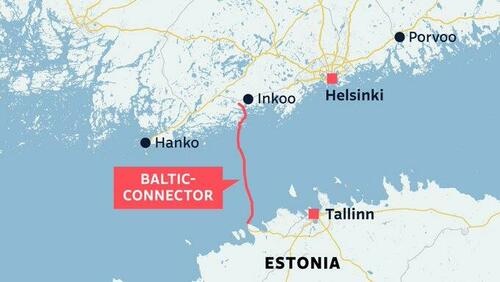
ERR News reported that the Estonian Navy started surveying the pipeline with its equipment on Monday, while the Finnish Security and Intelligence Service will also be involved in the investigation. While the Finnish operator gave no reason for the suspected leak on Monday, Finnish officials, one day later, have now said their investigation of the leak will be on the premise of sabotage. “FINNISH DAILY ILTALEHTI, SWEDISH PUBLIC RADIO, CITING FINNISH GOVERNMENT SOURCES: ESTONIA-FINLAND SUBSEA GAS PIPELINE HAS BEEN DELIBERATELY DAMAGED” … queue Western media outlets who will likely place blame on Moscow – just as they did after the September 2022 bombing of the Nord Stream undersea pipeline that once connected Germany with cheap natural gas from Russia.
In early 2023, journalist Seymour Hersh published a bombshell report as his first Substack post that the US blew up the Russia-to-Germany natural gas pipeline as part of a covert operation under the guise of the BALTOPS 22 NATO exercise. Last month, on the first anniversary of the bombing, he posted an article titled “A Year of Lying About Nord Stream, deals with motive. What was the United States’ motive?” His sources said told him: “Biden administration blew up the pipelines but the action had little to do with winning or stopping the war in Ukraine. It resulted from fears in the White House that Germany would waver and turn on the flow of Russia gas—and that Germany and then NATO, for economic reasons, would fall under the sway of Russia and its extensive and inexpensive natural resources. And thus followed the ultimate fear: that America would lose its long-standing primacy in Western Europe.”

Interview. “..the US has no journalists, only propagandists, and the rule of law has been discarded. The United States is on the verge of becoming a tyranny. That is the American political crisis.”
• The US Is On The Verge Of Becoming A Tyranny (Paul Craig Roberts)
There are currently no legal proceedings against the Biden family. The US Department of Justice and the FBI have instead protected both Biden and his son despite the massive evidence in their hands, such as the incriminating information on Hunter Biden’s laptop and the classified national security documents dating from his days as Vice President found in Joe Biden’s homes, car, garage, and storage places. The legal charges brought against Trump are like all the others since 2016–Russiagate, impeachments, document gate, stripper gate, January 6 Insurrection. They have no basis in reality or in law. They are brought by Trump-hating black prosecutors in New York state, New York city, and Fulton County, Georgia, and are nonsensical on their face.
Trump and his co-defendants have to pay attention to the charges, because the prosecutors are known enemies of Trump and his supporters, the judges are Democrats who don’t want Trump as president, and the trials will be held in Democrat jurisdictions where the juries will be Democrat and largely black. There is no outcry against this legal atrocity from the legal profession, the law schools, the bar associations, and very little from Congress. So we face the possibility that Trump can be falsely convicted and forced to spend the rest of his life in appealing the convictions. How the American people will take this I do not know. It might make them very angry and unwilling to accept the use of law as a weapon against Trump and the traditional American electorate. On the other hand, the people might conclude that their country has been lost and nothing can be done, give up, and submit to the rule of unaccountable power.
Everywhere the people see the political use of law for punishment by every federal department in the Biden Regime. Mike Lindell, a Trump donor, has been slapped with five audits by the Internal Revenue Service. Lawyers cannot defend Trump without being punished. Trump attorney Rudy Giuliani, former Mayor of New York, has been slapped by the IRS with a tax and penalty bill of $550,000 and a lien on his home. Elon Musk is being investigated by the US Security and Exchange Commission for his purchase of Twitter. Democrats hate Musk, because he revealed that the FBI had secretly forced Twitter to censor all who disagreed with the Biden Regime’s narratives. The list is long. I will define for you American’s political crisis. The belief system has collapsed.
The elites no longer believe in the Constitution that defines the country. Students in law schools and journalism schools are taught that the US Constitution is a racist document and an instrument of white oppression of people of color. They are taught that the Constitution stands in the way of “social progress,” by which they mean the use of law not as a shield of rights but as a weapon for coerced change based on ideological beliefs and commitments. What it boils down to is this: In America you are no longer innocent until proven guilty. You are guilty because you are white, or because you are a Trump supporter. No other evidence is necessary. The Democrats have put 1,000 Trump supporters in prison because they attended a rally for Trump.
Traditionally, American liberals based their demands for reforms not on appeals to good will but on denunciation of existing society. This made it easy for the Cultural Marxists to march through the institutions and discredit Western civilization and the institutions that embody it. Today in American universities no student ever hears anything affirmatory about his country. Instead, they learn that it is something that must be reconstructed. Journalism students learn that objectivity is no longer the purpose of reporting and that news is a weapon to be used to remake society. Law students learn that law is not a protector of rights but a weapon to be wielded to revolutionize society. Consequently, the US has no journalists, only propagandists, and the rule of law has been discarded. The United States is on the verge of becoming a tyranny. That is the American political crisis.





“Tigger is quite big enough,” said Piglet.
“He isn’t REALLY very big.”
“Well, he SEEMS so.”
Pooh was thoughtful when he heard this, and then murmured:
“Whatever his weight in pounds, shillings, and ounces,
He always seems bigger because of his bounces.” A.A.Milne

Lids
Self-closing jam jars lids
Produced by Aohata, one of the most popular brands in Japan, it never had an official explanation, but it has proved real and possibly working with an optimal tolerance and pressure difference driven by temperature gapspic.twitter.com/JR9Ll0kmhK
— Massimo (@Rainmaker1973) October 10, 2023

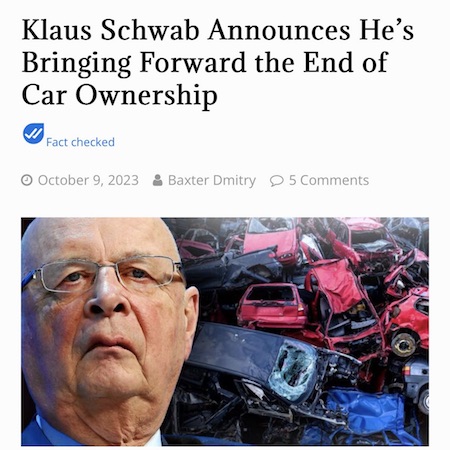

Leopard
https://twitter.com/i/status/1711988297596018975





Support the Automatic Earth in wartime with Paypal, Bitcoin and Patreon.




